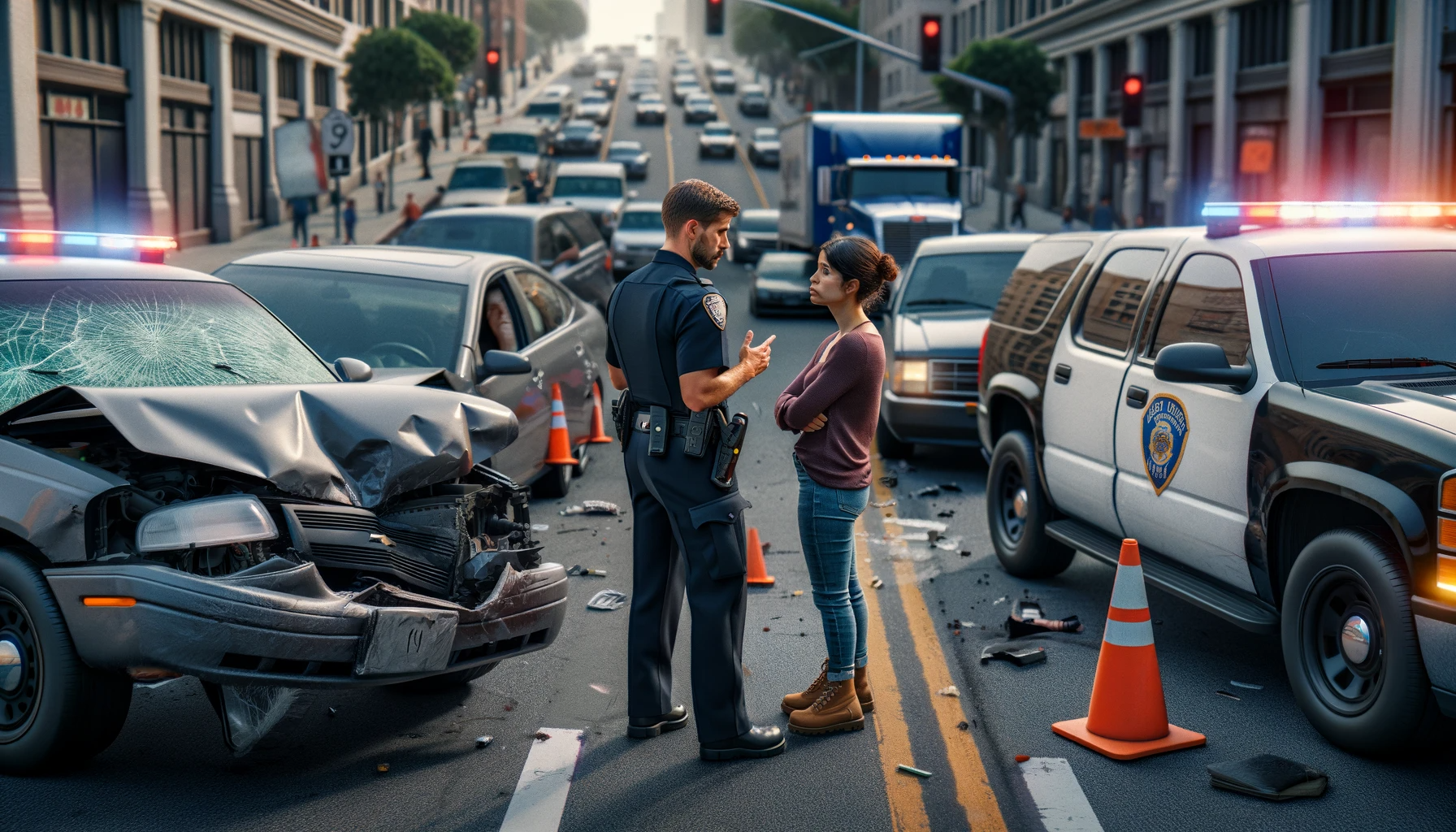Legal Resources for Auto Accidents: Navigating California's Automobile Accident Laws
Introduction
Navigating the aftermath of an
auto accident can be daunting, especially when dealing with the complexities of California's automobile accident laws. Whether you're a driver, passenger, or pedestrian, understanding your rights and responsibilities is crucial. This guide aims to provide a comprehensive overview of the legal resources available to auto accident victims in California.
Understanding California's Automobile Accident Laws
Overview of California's Auto Accident Laws
California operates under a "fault" system, meaning the driver responsible for the accident is liable for the damages. This system impacts how insurance claims are processed and how fault is determined.
Key Legal Terminologies
Familiarize yourself with terms such as "comparative negligence," "liability," and "damages" to better understand legal discussions and documents.
Ensuring Safety and Health
Your first priority should be safety. Check for injuries and move to a safe location if possible. Call emergency services immediately if there are serious injuries.
Reporting the Accident
In California, you must report any accident involving injury, death, or property damage over $1,000 to the DMV within 10 days. Failure to report can result in penalties.

Collecting Evidence
Gather as much evidence as possible at the scene. Take photos, exchange information with other drivers, and collect contact information from witnesses.
Dealing with Insurance Companies
Filing a Claim
Contact your insurance company as soon as possible to report the accident. Provide them with all necessary information and documentation.
Negotiating with Insurance Adjusters
Insurance adjusters aim to settle claims for the least amount possible. Be prepared to negotiate and consider seeking legal advice if needed.
Legal Rights and Responsibilities
Drivers’ Responsibilities
Drivers must carry a valid driver's license, insurance, and adhere to traffic laws. Failure to do so can result in fines, penalties, and increased liability in an accident.
Passenger Rights
Passengers have the right to seek compensation for injuries sustained in an accident. This can include medical expenses, lost wages, and pain and suffering.
Determining Fault in an Accident
Comparative Negligence
California follows the comparative negligence rule, where fault is divided among parties involved in the accident. Even if you are partially at fault, you can still seek compensation.
Role of Traffic Violations
Traffic violations can significantly impact fault determination. Violations like speeding or running a red light can increase liability.
Property Damage Claims
These claims cover damages to your vehicle and other personal property. Ensure you get an estimate for repairs and document all related expenses.
Personal injury claims address physical and emotional injuries. Keep detailed records of medical treatments and expenses.
Wrongful Death Claims
In tragic cases, families can file wrongful death claims to seek compensation for the loss of a loved one due to another driver's negligence.
When to Hire a Lawyer
Consider hiring an attorney if the accident involves serious injuries, significant property damage, or complex legal issues.
How to Choose the Right Attorney
Look for an attorney with experience in
auto accident cases, good reviews, and a proven track record of successful settlements.
The Legal Process After an Auto Accident
Filing a Lawsuit
If negotiations with insurance companies fail, you may need to file a lawsuit. This involves drafting a complaint and submitting it to the court.
Discovery Phase
During discovery, both parties exchange information and evidence. This phase can involve depositions, interrogatories, and document requests.
Settlement Negotiations
Most
auto accident cases are settled out of court. Your attorney will negotiate with the other party to reach a fair settlement.

Going to Trial
If a settlement cannot be reached, the case goes to trial. A judge or jury will hear the evidence and make a final decision.
Compensation You May Be Entitled To
Medical Expenses
You can claim compensation for all medical expenses related to the accident, including future medical costs.
Lost Wages
If the accident impacts your ability to work, you can seek compensation for lost wages and future earning capacity.
Pain and Suffering
Compensation for pain and suffering addresses the physical and emotional distress caused by the accident.
Statute of Limitations
Time Limits for Filing Claims
In California, you generally have two years from the date of the accident to file a
personal injury lawsuit. Property damage claims have a three-year statute of limitations.
Exceptions to the Rule
Certain exceptions can extend or shorten these time limits. Consult with an attorney to understand specific circumstances that may affect your case.
Special Considerations for Different Types of Accidents
Rideshare Accidents
Accidents involving rideshare vehicles like Uber and Lyft have unique legal complexities. Determine whether the driver was on duty and check the company’s insurance coverage.
Truck Accidents
Truck accidents often result in more severe injuries and involve multiple parties, including the driver, trucking company, and manufacturers.
Motorcyclists face higher risks on the road. Claims can be more complex due to the severity of injuries and biases against motorcyclists.
Preventative Measures and Traffic Safety
Defensive Driving Tips
Practice defensive driving to reduce the risk of accidents. This includes being aware of your surroundings, obeying traffic laws, and avoiding distractions.
Importance of Following Traffic Laws
Adhering to traffic laws not only prevents accidents but also strengthens your position if you need to file a claim.
Support Groups and Counseling
Emotional support is crucial after an accident. Consider joining support groups or seeking counseling to cope with trauma.
Financial Assistance Programs
Explore financial assistance programs that can help cover medical bills, rehabilitation costs, and other expenses.
Conclusion
Navigating the aftermath of an
auto accident in California involves understanding your legal rights and responsibilities. By taking the right steps immediately after the accident, dealing effectively with insurance companies, and seeking legal assistance when necessary, you can ensure you receive the compensation you deserve. Stay informed about the laws, and remember that support and resources are available to help you through this challenging time.
Look for an attorney who has the right legal resources for your legal needs.
Contact us here on the
Warmuth Law website or through our hotline 888-517-9888.
Frequently Asked Questions (FAQ's)
-
What should I do immediately after an auto accident in California?
- Ensure your safety, report the accident to authorities, and gather evidence at the scene.
-
How does California's comparative negligence rule affect my claim?
- You can still seek compensation even if you are partially at fault, but your compensation will be reduced by your percentage of fault.
-
When should I contact an attorney after an auto accident?
- Consider contacting an attorney if the accident involves serious injuries, significant property damage, or complex legal issues.
-
What types of compensation can I seek after an auto accident?
- You can seek compensation for medical expenses, lost wages, and pain and suffering.
-
What is the statute of limitations for filing an auto accident claim in California?
- The statute of limitations is generally two years for personal injury claims and three years for property damage claims.













